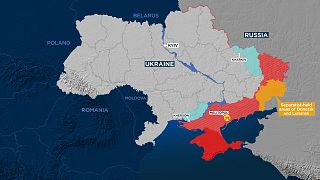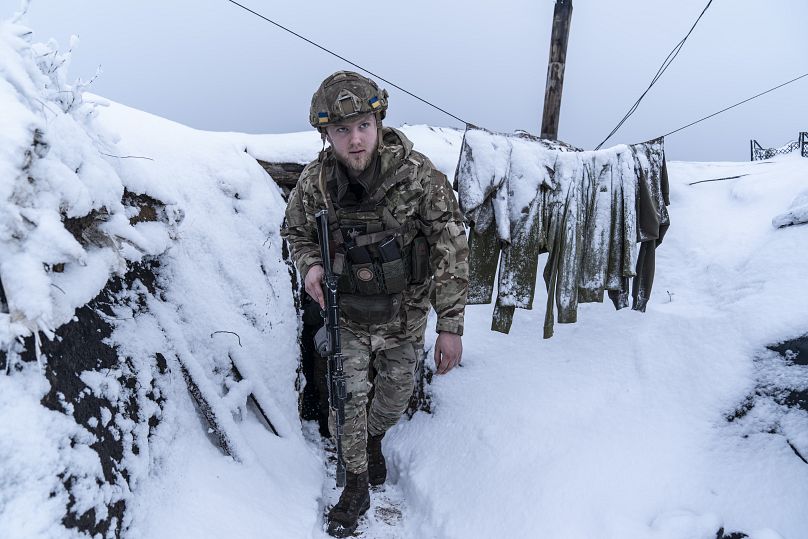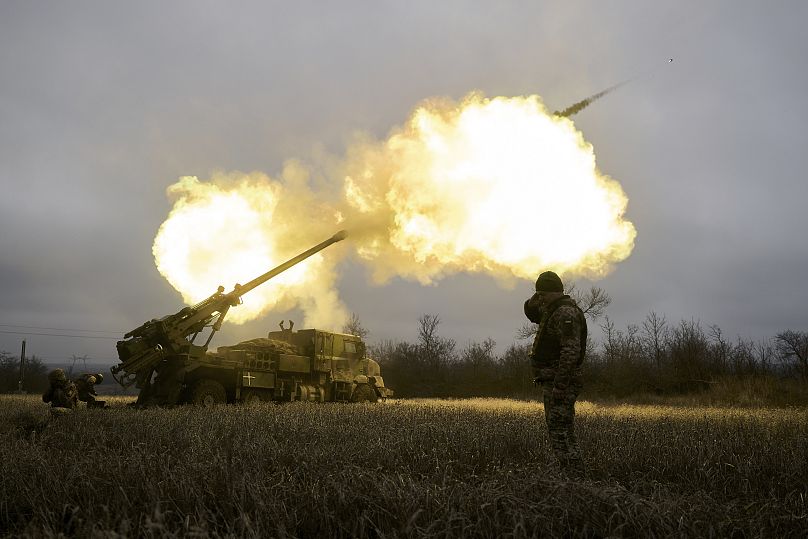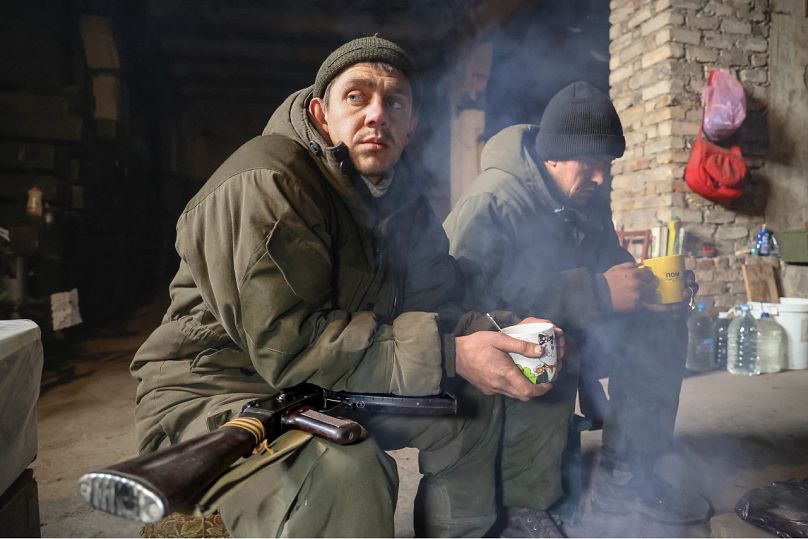Alessio Dellanna

As Russian strikes against Ukraine continue relentlessly and peace hopes seem to fade, a growing number of experts say the war may soon reach a crucial turning point.
"Ukraine is marshalling and holding back troops and ammunition for a new major attack on Russian positions", said Peter Dickinson, Ukraine analyst at the Atlantic Council.
"They've got to maintain the momentum that they’ve built up: First in September with the capture of the Kharkiv region, and then in November with the liberation of Kherson," he told Euronews.
A new offensive would also be "crucial to maintain the support of the international community and demonstrate that their huge financial and military effort for Ukraine is bringing results".
 A Ukrainian serviceman walks along a snow covered trench guarding his position at the frontline near VodianeAP Photo/Evgeniy Maloletka
A Ukrainian serviceman walks along a snow covered trench guarding his position at the frontline near VodianeAP Photo/Evgeniy MaloletkaUkraine has to strike 'while the ground is still frozen'
Former US Army colonel Liam Collins told Euronews that Ukraine needs to stage an attack before snow melts in spring, making unpaved roads harder to use.
"Everybody remembers the flooding in the first stages of Russia's invasion. It's very challenging to conduct an offensive and move troops around in those conditions".
"Ukraine are going to want to stage this attack while the ground is frozen and in favourable state for them".
Collins said that Ukraine can also absorb the stress of fighting in low or sub-zero temperatures much better than the Russians, who have logistics, morale and leadership difficulties instead.
"Those systems have been stressed for the Russians from the onset and weather conditions will only make that harder. The only advantage the Russians have in this conflict is mass".
Attacking down south could split up Russian troops
While many are trying to speculate where the hammer may fall, Kyiv-based Dickinson said that logistics suggests the most obvious place for the offensive would be in the south, straight down to the Azov Sea coast.
"Probably in the region of Berdyansk, perhaps towards Melitopol, to isolate from resupply the Russian forces that head towards Crimea".
He said such an attack would be a much larger version of the Kherson offensive repeated, where the Russian forces were essentially cut off, blockaded and forced to retreat because they couldn’t resupply themselves.
 Ukrainian soldiers fire a French-made CAESAR self-propelled howitzer towards Russian positions near Avdiivka, Donetsk region, Ukraine, Monday, Dec. 26, 2022.Libkos/Copyright 2022 The AP. All rights reserved.
Ukrainian soldiers fire a French-made CAESAR self-propelled howitzer towards Russian positions near Avdiivka, Donetsk region, Ukraine, Monday, Dec. 26, 2022.Libkos/Copyright 2022 The AP. All rights reserved.Collins however warned the more the Russians are forced back, the harder it will be to fight them.
By re-conquering large swathes of territory, he said, Ukraine has pushed the enemy into smaller and smaller areas, so their army is able to mass more and not be as distributed.
At the same time, "Russian troops can’t conduct large scale fire manoeuvre, they don’t have the capability", he addedd. "It's just massing their artillery, with little tactical and strategic value, and at a great cost."
"If Ukraine is effective with their advance and start bombing to hit the supply lines in the commandos of the Russians, we're going to see them able to take up larger territories at some point during a large-scale counter-offensive, most likely later in the winter."
 Servicemen of the People's Militia of the Russian-controlled Donetsk region, unspecified location in eastern Ukraine, Dec. 29, 2022AP Photo/Alexei Alexandrov
Servicemen of the People's Militia of the Russian-controlled Donetsk region, unspecified location in eastern Ukraine, Dec. 29, 2022AP Photo/Alexei AlexandrovUkraine could use the element of surprise
Kyiv could also try to get the Russians off guard by sending out false information.
"Ukraine has proved very skilled at pulling surprises", said the Atlantic Council's Peter Dickinson.
"The Kharviv offensive in September was preceded by months of signalling that they were going to put up a major offensive in the south."
"Russia pulled large number of troops to the south, and of course Ukraine attacked in the east. You would assume they would like to repeat that success in terms of catching Russia out".
No comments:
Post a Comment